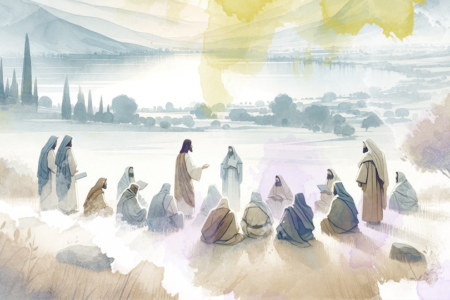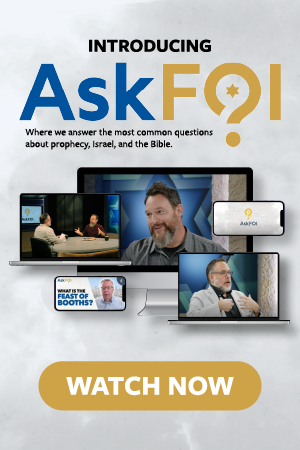The Contented Life
Philippians 4:10–13
Contentment is a difficult word to define. It varies based on each person’s values and perspective on life. Some people believe pleasure, popularity, prestige, power, position, philanthropy, or possessions produce contentment. Yet, many people possess all these things and are still not content. For example, King Solomon, who had everything anyone could want, said, “Vanity [worthless or futile] of vanities, all is vanity” (Eccl. 1:2); he still lacked contentment (chaps. 1—2).
Jesus instructed His listeners not to be filled with worry or anxiety, which prevents people from being content (Mt. 6:25–34). Scripture commands believers to be content with what they have (Heb. 13:5). Contentment seems rare among Christians today; but despite all the trials the apostle Paul suffered (2 Cor. 11:23–28), he lived a contented life.
What was Paul’s secret? He provided the answer in Philippians 4:10–13.
Paul’s Appreciation
Paul said, “I rejoiced in the Lord greatly that now at last your care for me has flourished again; though you surely did care, but you lacked opportunity” (v. 10).
Those who study Paul’s life never cease to marvel at his great joy throughout all the suffering he experienced, even in prison.
Paul wrote this epistle 10 years after starting the church in Philippi and fleeing to Berea soon after because of persecution. The Philippian church had given generously toward his ministry at that time. But as communication became difficult, the Philippians lost the opportunity to contact and support Paul. In the meantime, the church continued to remember him in prayer with thanksgiving.
When an opportunity arose to give to Paul’s ministry through his helper Epaphroditus, the church sent a financial gift to him while he was imprisoned in Rome.
Paul acknowledged the church’s gift and said its care for him had “flourished again” (v. 10). The word flourished is used only here in the New Testament and refers to a perennial plant flowering again—bursting into bloom—or, in this context, reviving. Paul knew he was always in the Philippians’ minds and that they must have had legitimate reasons for not contacting him. The church failed to respond sooner because it “lacked opportunity” (v. 10), meaning it was in poverty or did not know where Paul was.
Notice, Paul not only “rejoiced in the Lord” but did so “greatly” (v. 10). He rejoiced not only because he received much-needed financial support but because the church renewed its contact with him after many years, allowing him to know the believers in Philippi were doing well. The word rejoice indicates Paul embraced a spirit of rejoicing continually and was “greatly rejoicing,” not merely because of the financial gift, but because the gift spoke so highly of the Philippians’ love and concern for him. Though incarcerated and chained to a Roman guard, Paul let his great joy be known.
Paul rejoiced “in the Lord” because the Lord Jesus Christ had stirred the Philippians’ hearts to give. All glory and praise should go to Him.
Paul’s Acknowledgment
Although Paul treasured the Philippians’ gift and needed more support, he did not want to leave the impression that they needed to send him more money. Such a request might imply he was more interested in the gift than in the people who sent it.
So, Paul clarified his appreciation: “Not that I speak in regard to need, for I have learned in whatever state I am, to be content” (v. 11).
The apostle learned to be satisfied in all his circumstances, even though most of his circumstances were troubling. The phrase have learned (literally, “had come to learn”) speaks of Paul developing contentment through his many experiences. The phrase in whatever state I am indicates he taught himself to adjust to them, not by self-effort, but through the Lord’s strength.
Some commentators believe Paul was born into a wealthy, Hellenistic Jewish family in the Diaspora. He was also a Roman citizen in Tarsus of Cilicia, which afforded him the opportunity to receive a secular education, whereas the lower social classes were deprived of citizenship and other such privileges. Paul’s father sent him to Jerusalem to study under Gamaliel, one of the greatest rabbis of antiquity, to be educated as a Pharisee according to Jewish law and rabbinic tradition.
The word content means to be self-sufficient or self-satisfied. Paul had many needs, for he was under house arrest, chained to a Roman soldier, forced to eat whatever was given to him, and most likely endured uncomfortable cold in winter and heat in summer (cf. 1 Cor 4:11–13; 2 Cor. 4:8–12; 6:4–5; 11:24–27).
Some would define Paul as a Stoic in his day. Stoics were characterized as calm; austere, especially in the face of trouble or loss; and restrained, not giving in to their emotions. But Paul was far from stoical. His contentment was not natural but, rather, God-given.
This type of commitment accepts that the Lord allows every situation we face. It does not imply that Paul liked everything he endured. On the contrary, he experienced enough to learn how to accept everything without complaining or becoming discouraged, which leads to despair and hopelessness.
Paul’s Adaptability
Paul clarified his response to his experiences, saying, “I know how to be abased, and I know how to abound. Everywhere and in all things I have learned both to be full and to be hungry, both to abound and to suffer need” (Phil. 4:12).
The word abased means to be brought low or humbled. The word abound means to “superabound,” indicating Paul had in excess whatever he needed, wherever he traveled. Abased and abound refer to Paul’s material needs, such as food, clothing, and shelter.
In every experience, Paul said, “I have learned . . . both to abound and to suffer need” (v. 12). The word learned (Greek, mathano) means to learn by practice and experience, to acquire by custom or habit. Thus, he was saying he had been initiated into or taught the secret of contentment regardless of his circumstances.
A Christian’s contentment is a learned secret that cannot be known apart from Christ. Paul discovered this secret over time as part of his spiritual growth.
Paul’s Assurance
Certainly, many people today ask themselves, “What is the secret of being confident and content in every circumstance?” Paul’s answer was, “I can do all things through [in] Christ who strengthens me” (v. 13).
Paul’s spiritual union with Christ (Gal. 2:20) strengthened (enabled) him to be content in every situation, even while in prison.
Contentment comes from our relationship with Christ, not from our own efforts or positive thinking. The phrase all things (Phil. 4:13) refers to whatever God called Paul to do. Christ equipped and sustained him with divine strength to be content. Therefore, as a man “in Christ,” whether in poverty or prosperity, Paul enjoyed contentment. Unbelievers can never find true contentment because they are not “in Christ” (cf. Rom. 8:6–8).
The hardest thing Christians have to learn is that they can do nothing by themselves without Christ. The Lord told His disciples, “Without Me you can do nothing” (Jn. 15:5). We often forget that truth. Each of us needs to remember that the heaviest burden can be borne, the severest trial faced, the greatest obstacle surmounted, and the most perplexing problem solved “in Christ.”
Let us take to heart and apply Paul’s secret to contentment: “I can do all things through Christ who strengthens me” (Phil. 4:13).








